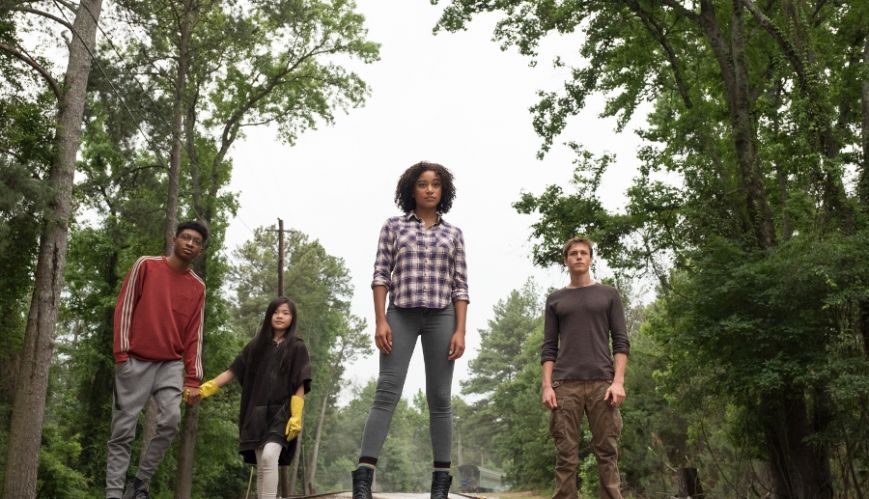Movie review: The Darkest Minds

Movie review: The Darkest Minds
15 August 2018
The Darkest Minds depicts a future where children and teenagers are the enemy of the state.
Hollywood is no stranger to dystopian films where teenage heroes are the only hope for humanity.
The Hunger Games, Divergent and The Maze Runner have all had their share of the box-office dollar.
There have also been a fair number that suggest there are very few people teens can trust in taking hold of that hope – Tomorrowland, The Giver and The Host spring to mind.
However, The Darkest Minds, the latest film to join this genre, might be the first to make adults the outright enemy.
The Darkest Minds is based on the bestselling teen fiction series by Alexandra Bracken. In a not-so-distant future a plague has killed 98 per cent of America’s children.
Rather than cherish the remainder, though, the adults of the world have been taught to fear them: “The government wasn’t afraid of what happened to the ones that didn’t make it. They were afraid of us, because the ones that survived, changed.”
Inexplicably, America’s remaining children begin demonstrating supernatural powers. Just as hard to believe, the government decides to gather those who are left into concentration camps where they can be studied, controlled and, in some cases, carefully disposed of.
The heroine of The Darkest Minds is Ruby Daly, played by Amandla Stenberg. Her parents are so scared by her transformation that they voluntarily surrender her. Ruby is driven to an isolation facility where she meets similarly apprehended children.
Together they plan an escape, in order to seek out a place where they can finally be who they were meant to be. The Darkest Minds’ storyline considers teenage alienation and resisting an oppressive government, but its breathy love affair between Ruby and fellow runaway Liam (Harris Dickinson) is what really drives the plot.
Yet The Darkest Minds is hardly breaking new ground in teenage romance when Twilight has already presented us with a tortured love triangle between a girl, a werewolf and a vampire.
What it does dial up, though, is a young adult’s distrust of elders. We live in an age where “Freedom!” is rapidly becoming the only mantra that matters. It’s important to realise, though, that believing in a child’s right toaer decide their own identity or direction is a relatively new thing, both in society and children’s fiction.
In the borderless 1960s, Maurice Sendak’s classic Where the Wild Things Are still portrayed Max as a boy who realised his mother’s boundaries were part of her love. In the 1950s, William Golding’s Lord of the Flies demonstrated the danger of giving children power without the prudence to wield it. Even Peter Pan’s Island of Lost Boys was actually considered by author J.M Barrie to be an ultimately sad place, because it lacked the affection and guidance parents provide.
Each in their own way reflects the Bible’s assertion that young minds need wisdom more than they need choice. Famously, it records the real-life disaster young king Rehoboam unleashed on Israel when he dispensed with the need for seasoned advice and relied on “... the young men who had grown up with him” instead. (1 Kings 12:8).
In fact, the Bible goes one step further, describing the inappropriate empowerment of young minds as part of the punishment God will mete out on Judah, the nation that has rejected his wisdom: “I will make mere youths their officials; children will rule over them” (Isaiah 3:4).
This is not to say that young people can’t exercise choice wisely; the Bible includes the names of more than can be easily listed here. But wisdom isn’t acquired through being free to define our identity or our direction.
Rather, it begins by submitting our heart’s desires to those who know better, beginning with the elders God has placed over us, and ultimately our Father in Heaven.
The Darkest Minds has set up merciless straw men that are hard to defend. Yet it would be a dark mind indeed that believed the teenager had nothing to learn.